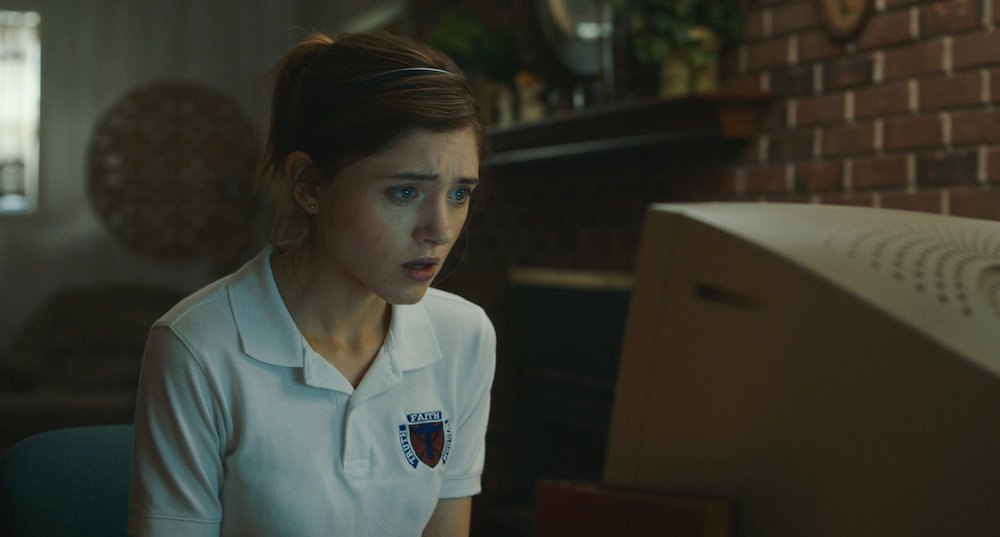Similar to last year’s inclusive comedy Blockers–which proved teen girls deserve their own kind of high school sex comedy like the boys have enjoyed for years–Yes, God, Yes continues to evolve the genre while remaining completely grounded in its complexities and contradictions. Obvious Child co-writer Karen Maine’s directorial debut is a witty comedy with nearly no false beats, trading crude comedy for smart insight without forgoing laughs. Natalie Dyer stars as Alice, a 16-year-old girl coming of age in the late 90 before MySpace and other social networking. Thanks to the new found freedom of AOL chatrooms she’s able to connect to a variety of like-minded people from her living room in Iowa, discovering newfound urges when an innocent game of movie scrambles turns into an “A/S/L” instant message.
Opening with both quotes from the Bible and Urban Dictionary, Maine’s Yes, God, Yes is a tender and insightful comedy that miraculously remains in control of its tone, taking its subject matter seriously. At first, Alice is accused of “tossing salad,” receiving a bad reputation right before Kirkos, a four-day church youth group retreat in the woods. This, amongst other factors, threatens her relationship with best friend Laura (Francesca Reale) who starts to view her as a sexual deviant. This new attention makes her a target for counselors, including the handsome jock Chris (Wolfgang Novogratz) and a young hip priest Father Murphy (Timothy Simons) with his own temptations.
When Alice is caught by a Nina (Alisha Boe)–a perfect counselor who insists the girls find spiritual meaning in TLC’s Unpretty–with a contraband cell phone she’s given kitchen clean-up duty and a new insight into just how things run at the camp. The tone is somewhat lighter than other films that deal with teen sexuality in the backdrop of a religious camp (usually involving conversion therapy) and while Alice walks through the camp questioning the frenzy over sexuality, the hypocrites are at the very least sincere.
The story’s most moving passage comes upon Alice’s escape to a gay bar where she gets the kind of advice that will change her life in the film’s sweetest scene. The lessons of Kirkos are purely aspirational, and while the film may offend those of faith it smartly humanizes rather than villainizes believers. As someone who in the 90s had gone on a CCD weekend retreat in which we were lectured on morality and temptation (sex and drugs), the film feels painfully accurate as Dyer’s Natalie turns to the internet to figure it out long before the days of high-speed broadband. Similar to Obvious Child, the film avoids over the top tropes and shock value with refreshing sincerity. This is the kind of sex-positive coming of age comedy that smart, curious teens truly deserve. In a strangely conservative way, it models healthy self-discovery without upping the ante with endless humor about drugs and drinking.
Yes, God, Yes premiered at SXSW and opens on July 24, 2020.

